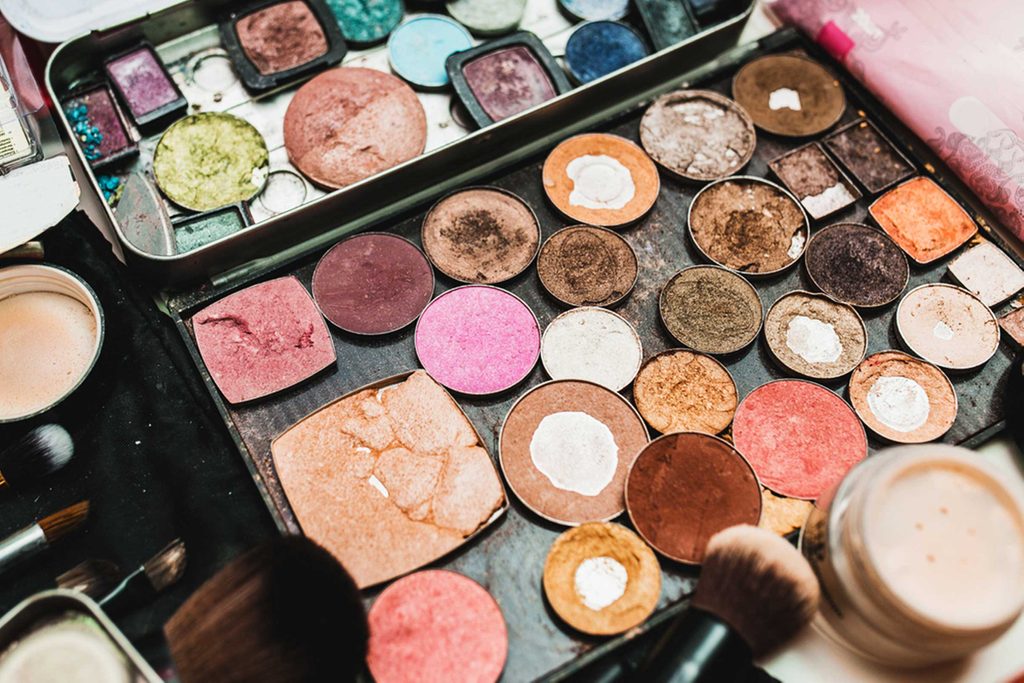Newsfeed
Put your hand up if you keep your favourite foundation in the back of your drawer for “special occasions”. Yes? I thought so. Even as a beauty editor, I have an old Chanel Les Beiges foundation – that I’ve had since pre university – that only comes out on super-special occasions like that Justin Bieber concert I went to when I was 17… or maybe my future wedding. Just kidding. Kind of. But seriously, makeup hoarding is a thing, and we need to stop it. I sat down with celebrity dermatologist, Dr. Fazeela Abbasi of Euromed Clinic Dubai, who explained why we should be checking the expiry dates on our beauty products, and how we can tell when a formula has expired.

For me, certain skincare and makeup formulas are a bit sentimental, which is why I think I’m so shamefully bad at throwing them out. I must confess, I haven’t used the questionable Chanel foundation for quite a few years now, but if I was in a pinch, I might, and apparently, I’m not alone. According to Dr. Abbasi, she’s seen an increase in skin conditions in Gen Z patients due to use of expired formulas. It’s probably worth noting here that I technically fall under the Gen Z bracket. Yet, Gen Z or not, we’re all going to slip up from time to time – an unwashed brush here, a night slept in makeup there – but using expired products can actually be quite dangerous. As Dr. Abbasi clarifies, “Expired makeup can harbour bacteria which can lead to skin irritations like acne or rashes and even eye infections. It’s really important to not use eye makeup past its expiry date, as this can be harmful to the delicate eye area.”
Eye makeup – despite being used for one of our most important, precious and sensitive organs – is a common culprit. In a 2013 study published in the International Journal of Cosmetic Science, 70% of 44 women aged 18 to 28 were found to be using some type of expired product, and they were mostly eye makeup formulas like mascaras, liners or shadows. These formulas were tested for a number of bacterial baddies, and the results were in themselves eye-watering. 67% of the expired formulas contained potentially harmful levels of microorganisms like Staphylococcus Corynebacterium or Moraxella, which are both common in bacterial skin infections.
All beauty products should have a “Period After Opening” or “PAO” symbol on the packaging. It’s usually somewhere near the ingredients, and it looks like a picture of an open tub of cream. On this symbol will be an “M”, which stands for “month”, preceded by a number, which stands for the number of months it can be used for once opened. So, if your mascara says “1M”, it means it can only be used for one month after opening, and you should throw it out after that. Symbols aside, Dr. Fazeela Abbasi says you should “Trust your eyes and nose – if a product starts to change colour, smell different, or change consistency, throw it away.”
“All makeup expires eventually even if unopened,” she explains further, “usually within two years of purchase and sometimes in as little as three months for eye-based products. This is certainly the case for any products that contain oils such as foundations, concealers or liquid blushes, as the oil can go rancid. If properly stored in a cool, dry place, unopened and completely sealed, makeup should last for two years, but it’s worth remembering that if the product is a natural makeup formulation without a strong preservative, it may also go bad sooner, even if sealed.”
Especially as we navigate a cost of living crisis, you might be keen to use your products for as long as you can, but Dr. Abbasi advices against it: “If you use something a little bit past its expiration date, you might be fine health-wise, but you’ll notice it won’t perform as well. For many, it’s not uncommon to use the same makeup product for years, especially if it’s something you use sparingly, but I would always recommend that you take expiry dates seriously.”
When buying skincare or makeup, you should take the kind of formula into consideration. Dr. Abbassi says, “Liquids and creams last between six to 12 months as they contain more water, oils and hydrating agents that provide moisture for bacteria to thrive. Powders can last up to two years as dry textures don’t allow bacteria to thrive as easily, though you should discontinue use if you spot discolouration or a waxy build-up. If water is the first and main ingredient, then you will need to use it up quickly, as water encourages bacteria growth and bacterial contamination, and it breaks down when exposed to air. Mascara has a short shelf-life of four to six months. To stretch this out, stop pumping your mascara – doing this forces air into the tube, which dries it out and encourages bacterial contamination (the same is true for lip gloss!) – and don’t forget to get rid of mascara if you have had an eye infection!”
Dr. Fazeela Abbassi’s tips:
- Wash your tools regularly
- Wash hands before applying anything
- Keep lids closed tightly and throw away powder-based products without lids
- Sharpening pencils frequently will remove any bacterial growth on the top layer
- For lipsticks, use makeup wipes to remove the top layer of bacteria before each use
- When it comes to lip balms or salves, remember that products in tubes tend to last longer and are more sanitary to use
- Expired makeup may become dry or crumbly, but never use water or saliva to moisten it









